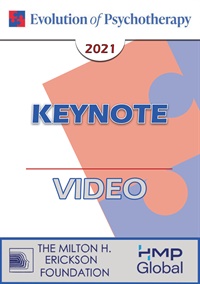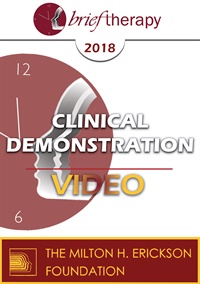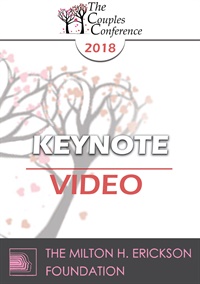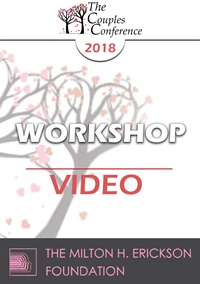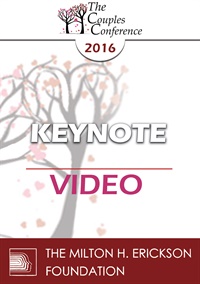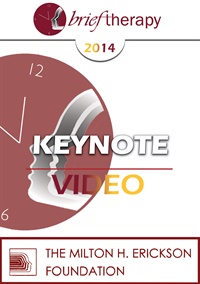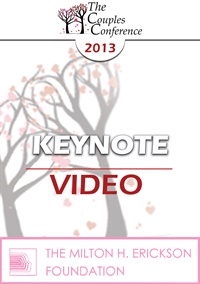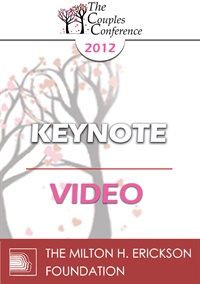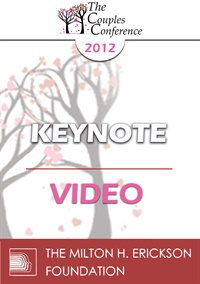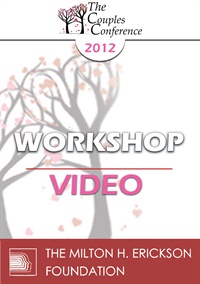- Average Rating:
- Not yet rated
- Topic Areas:
- Addiction | Attachment | Couples Therapy | Keynotes | Love | Relationships
- Categories:
- Evolution of Psychotherapy | Evolution of Psychotherapy 2021
- Faculty:
- Helen E. Fisher, PhD
- Course Levels:
- Master Degree or Higher in Health-Related Field
- Duration:
- 1 hour
- Format:
- Audio and Video
- Original Program Date:
- Dec 03, 2021
- Short Description:
- Is technology changing love? Why do you fall in love with one person rather than another? Why is the rejected brain primed for psychotherapy? How can you use neuroscience to keep love alive? And where are we headed in our digital age? Anthropologist and neuroscientist Dr. Helen Fisher uses her brain scanning work (fMRI) to discuss three basic brain systems that evolved for mating and reproduction--the sex drive, romantic love, and attachment; each plays a pivotal role in human health and happiness. And she uses her data on 50,000 single Americans to explain a new (and positive) trend in courtship, what she calls “slow love.” She then discusses her data on the biological foundations of human personality—specifically four basic styles of thinking and behaving that impact love relationships and all other social interactions.
- Price:
- $59.00 - Base Price
Credit available - Click Here for more information
- Average Rating:
- Not yet rated
- Topic Areas:
- Clinical Demonstrations | Continuing Education | Couples Therapy | Therapist Techniques
- Categories:
- Brief Therapy Conference | Brief Therapy Conference 2018 | Online Continuing Education | Pioneers in Couples and Family Therapy
- Faculty:
- Stan Tatkin, PsyD, MFT
- Course Levels:
- Master Degree or Higher in Health-Related Field
- Duration:
- 1:00:43
- Format:
- Audio and Video
- Original Program Date:
- Dec 08, 2018
- Short Description:
- This clinical demonstration showcases the Lovers Pose, a powerful somatic intervention in couple therapy designed to access and repair implicit memory and early attachment wounds. The pose draws on archetypal postures—caregiver-infant, inner child, and even the Pietà—placing partners in intentional roles guided by the therapist. With sustained eye contact and physical closeness, it induces a parasympathetic state that fosters emotional co-regulation, physiological attunement, and deep relational healing.
- Price:
-
Sale is $29.00
price reduced from Base Price - $59.00
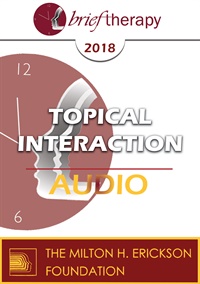
- Average Rating:
- Not yet rated
- Topic Areas:
- Topical Interactions | Couples Therapy | Love | Solution Oriented Approach | Brief Therapy
- Categories:
- Brief Therapy Conference | Brief Therapy Conference 2018
- Faculty:
- Elliott Connie, MA, LPC
- Duration:
- 58:58
- Format:
- Audio Only
- Original Program Date:
- Dec 08, 2018
- Short Description:
- Since the Solution Focused Approach is conversational in nature, and, based on questions, the clinician who is working with couples needs to be comfortable asking these kinds of questions when there are more than one person in the room. This can be tricky due to the nature of couples therapy. This talk will center on how to conduct couples session using this approach and how to use the question process to navigate even the trickiest sessions.
- Price:
- $15.00 - Base Price
Credit available - Click Here for more information
- Average Rating:
- Not yet rated
- Topic Areas:
- Addiction | Keynotes | Continuing Education | Love | Couples Therapy | Neuroscience | Sex and Sexuality
- Categories:
- Couples Conference | Couples Conference 2018 | Online Continuing Education
- Faculty:
- Helen E. Fisher, PhD
- Course Levels:
- Master Degree or Higher in Health-Related Field
- Duration:
- 57:05
- Format:
- Audio and Video
- Original Program Date:
- May 04, 2018
- Short Description:
- Biological anthropologist Helen Fisher discusses three brain systems that evolved for mating and reproduction: the sex drive; feelings of intense romantic love; and feelings of deep attachment to a long term partner. She then focuses on her brain scanning research (using fMRI) on romantic rejection and the trajectory of love addiction following rejection. She concludes with discussion of the brain circuits associated with long-term partnership happiness and the future of relationships in the dig
- Price:
-
Sale is $29.00
price reduced from Base Price - $59.00
Credit available - Click Here for more information
- Average Rating:
- Not yet rated
- Topic Areas:
- Addiction | Couples Therapy | Workshops | Continuing Education | Love | Neurobiology | Neuroscience
- Categories:
- Couples Conference | Couples Conference 2018 | Online Continuing Education
- Faculty:
- Helen E. Fisher, PhD
- Course Levels:
- Master Degree or Higher in Health-Related Field
- Duration:
- 1:57:48
- Format:
- Audio and Video
- Original Program Date:
- May 04, 2018
- Short Description:
- Biological Anthropologist Helen Fisher discusses four broad basic styles of thinking and behaving associated with four primary brain systems: the dopamine, serotonin, and testosterone and estrogen/oxytocin systems. She discusses why people are predisposed to love one person rather than another (mate choice). She hypothesizes that individuals who primarily express of the constellation of traits linked with each of these brain systems may be predisposed to different forms of love addiction, includ
- Price:
-
Sale is $29.00
price reduced from Base Price - $59.00

- Average Rating:
- Not yet rated
- Topic Areas:
- Addiction | Workshops | Love | Relationships | Attachment | Couples Therapy | Sex and Sexuality | Attunement
- Categories:
- Couples Conference | Couples Conference 2017
- Faculty:
- Alexandra Katehakis, MA, MFT
- Duration:
- 1:57:10
- Format:
- Audio Only
- Original Program Date:
- Mar 31, 2017
- Short Description:
- Sex addiction destroys trust in relationships, traumatizing the partner, the sex addict, and the family system. Betrayal is an attachment injury that topples the regulatory systems of both parties, and when relational trauma is left untreated, both parties and the family system will suffer. Thus, when acute emotional and physical symptoms become chronic, treatment becomes more difficult making the prognosis for restoring the coupleship poor. Rapid intervention and interactive regulation between the couple is essential for relational healing to begin immediately. Attunement, communication, and empathy (ACE) are the three-pronged stool that supports the long, and sometimes arduous journey to restoring trust.
- Price:
- $15.00 - Base Price
- Average Rating:
- Not yet rated
- Topic Areas:
- Neuroscience | Addiction | Keynotes | Love | Couples Therapy
- Categories:
- Couples Conference | Couples Conference 2016
- Faculty:
- Helen E. Fisher, PhD
- Course Levels:
- Master Degree or Higher in Health-Related Field
- Duration:
- 01:55:21
- Format:
- Audio and Video
- Original Program Date:
- May 13, 2016
- Short Description:
- Biological anthropologist Helen Fisher discusses three brain systems that evolved for mating and reproduction: the sex drive; feelings of intense romantic love; and feelings of deep attachment to a long term partner. She then focuses on her brain scanning research (using fMRI) on romantic rejection and the trajectory of love addiction following rejection. She concludes with discussion of the brain circuits associated with long-term partnership happiness and the future of relationships in the digital age—what she calls “slow love.”
- Price:
-
Sale is $29.00
price reduced from Base Price - $59.00
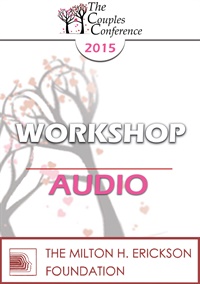
- Average Rating:
- Not yet rated
- Topic Areas:
- Addiction | Workshops | Love
- Categories:
- Couples Conference | Couples Conference 2015
- Faculty:
- Pat Love, EdD
- Duration:
- 1:46:03
- Format:
- Audio Only
- Original Program Date:
- Apr 26, 2015
- Short Description:
- This workshop will explore the fine line between love and addiction. Therapeutic strategies and questions will be explored, and you will learn three predictors of compulsion/ addiction.
- Price:
- $15.00 - Base Price
Tags: Addiction Love Couples Therapy
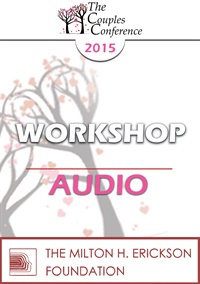
- Average Rating:
- Not yet rated
- Topic Areas:
- Couples Therapy | Workshops | Love | Communication | Conflict | Relationships
- Categories:
- Couples Conference | Couples Conference 2015
- Faculty:
- Bill O'Hanlon, MS
- Duration:
- 1:36:23
- Format:
- Audio Only
- Original Program Date:
- Apr 26, 2015
- Short Description:
- Couples, because they come from different background and have different understandings, often use the same words to mean different things, leading to unnecessary conflict. This workshop will provide a simple, but powerful method to quickly resolve couples conflicts using action talk.
- Price:
- $15.00 - Base Price
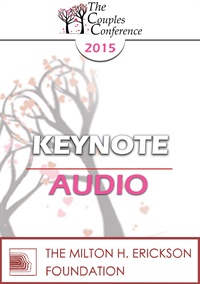
- Average Rating:
- Not yet rated
- Topic Areas:
- Couples Therapy | Attachment | Keynotes | Anxiety | Intimacy | Sex and Sexuality | Love
- Categories:
- Couples Conference | Couples Conference 2015
- Faculty:
- Esther Perel, MA, LMFT
- Duration:
- 57:21
- Format:
- Audio Only
- Original Program Date:
- Apr 25, 2015
- Short Description:
- This bold take on intimacy and sex grapples with the obstacles and anxieties that arise when our need for secure love conflicts with our pursuit of passion. We will tackle eroticism as a quality of vitality in relationships extending far beyond mere sexuality and show how reconciling these two competing needs is at the heart of sustaining desire over time. We will address paradoxes of desire and how social forces inhibit erotic expression; attachment history and the erotic blueprint.
- Price:
- $15.00 - Base Price
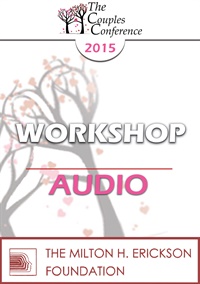
- Average Rating:
- Not yet rated
- Topic Areas:
- Couples Therapy | Infidelity | Sex and Sexuality | Workshops | Love | Intimacy
- Categories:
- Couples Conference | Couples Conference 2015
- Faculty:
- Esther Perel, MA, LMFT
- Duration:
- 1:40:17
- Format:
- Audio Only
- Original Program Date:
- Apr 25, 2015
- Short Description:
- Through case examples, Esther Perel will show how to effectively engage such issues as intimacy, sexuality and infidelity by creating separate spaces where each partner can explore his/her feelings and experiences along with larger relationship dynamics. We will show how to navigate privacy and secrecy, honesty and transparency, stage interventions around sexual impasses, and structure a safe and flexible therapeutic environment to work effectively with infidelity.
- Price:
- $15.00 - Base Price
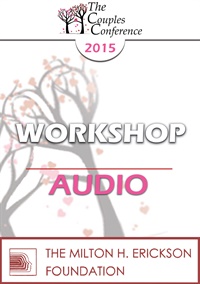
- Average Rating:
- Not yet rated
- Topic Areas:
- Couples Therapy | Workshops | Love | Communication | Intimacy | Relationships
- Categories:
- Couples Conference | Couples Conference 2015
- Faculty:
- Pat Love, EdD
- Duration:
- 1:34:46
- Format:
- Audio Only
- Original Program Date:
- Apr 25, 2015
- Short Description:
- While we love those deep, intimate conversations that bring us close together and join our spirits, what role does difference play in passion? Come explore this and other questions related to relational happiness. We will identify two empathic systems, and understand the role of dopamine in intimate relationships.
- Price:
- $15.00 - Base Price
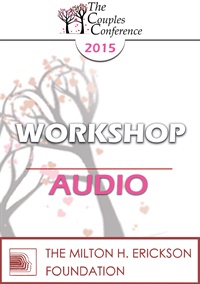
- Average Rating:
- Not yet rated
- Topic Areas:
- Couples Therapy | Workshops | Intimacy | Love | Sex and Sexuality
- Categories:
- Couples Conference | Couples Conference 2015
- Faculty:
- Esther Perel, MA, LMFT
- Duration:
- 1:27:43
- Format:
- Audio Only
- Original Program Date:
- Apr 25, 2015
- Short Description:
- Why does great sex so often fade for couples who claim to love each other as much as ever? Why doesn’t good intimacy guarantee good sex? When you love , how does it feel and when you Desire how is it different? Loss of Desire brings many people into our offices. It is the prime sexual complaint that leads relational unhappiness, infidelity and even divorce. For the most part, sexuality has been relegated to sex therapy and couple therapy has been a desexualized practice. Yet, love in our digital age puts sex at the center of couples’ lives.
- Price:
- $15.00 - Base Price
- Average Rating:
- Not yet rated
- Topic Areas:
- Keynotes | Couples Therapy | Intimacy | Sex and Sexuality | Attachment | Love
- Categories:
- Brief Therapy Conference | Brief Therapy Conference 2014
- Faculty:
- Esther Perel, MA, LMFT
- Course Levels:
- Master Degree or Higher in Health-Related Field
- Duration:
- 59:13
- Format:
- Audio and Video
- Original Program Date:
- Dec 13, 2014
- Short Description:
- Based on Perel’s Mating in Captivity, this bold take on intimacy and sex grapples with the obstacles and anxieties that arise when our need for secure love conflicts with our pursuit of passion. We will tackle eroticism as a quality of vitality in relationships extending far beyond mere sexuality and show how reconciling these two competing needs is at the heart of sustaining desire over time.
- Price:
-
Sale is $29.00
price reduced from Base Price - $59.00
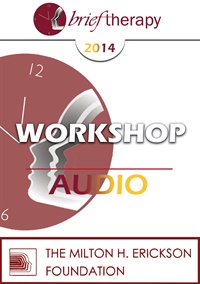
- Average Rating:
- Not yet rated
- Topic Areas:
- Couples Therapy | Infidelity | Sex and Sexuality | Workshops | Love | Brief Therapy
- Categories:
- Brief Therapy Conference | Brief Therapy Conference 2014
- Faculty:
- Esther Perel, MA, LMFT
- Duration:
- 1:32:45
- Format:
- Audio Only
- Original Program Date:
- Dec 12, 2014
- Short Description:
- Through case examples, Esther Perel, MA, LMFT will show how to effectively engage such issues as intimacy, sexuality and infidelity by creating separate spaces where each partner can explore his/her feelings and experiences along with larger relationship dynamics. We will show how to navigate privacy and secrecy, honesty and transparency, stage interventions around sexual impasses, and structure a safe and flexible therapeutic environment to work effectively with infidelity. Provide a multicultural perspective on differing notions of love, marriage and sexual behaviors, and to highlight the relationship between culture and sexuality.
- Price:
- $15.00 - Base Price
- Average Rating:
- Not yet rated
- Topic Areas:
- Couples Therapy | Invited Addresses | Love | Psychotherapy
- Categories:
- Evolution of Psychotherapy | Evolution of Psychotherapy 2013
- Faculty:
- Sue Johnson, EdD
- Course Levels:
- Master Degree or Higher in Health-Related Field
- Duration:
- 58:51
- Format:
- Audio and Video
- Original Program Date:
- Dec 14, 2013
- Short Description:
- EP13 Invited Address 12 – The New Science of Love: A New Era for Couple Interventions – Sue Johnson, EdD We have cracked the code of romantic love. We can precisely target interventions and shape the core defining moments of a love relationship. Adult attachment science offers a clear map to the creation of a secure lasting bond. New findings in neuroscience promise couple interventions that may be the most potent and far-reaching form of therapeutic intervention ever devised.
- Price:
-
Sale is $29.00
price reduced from Base Price - $59.00
- Average Rating:
- Not yet rated
- Topic Areas:
- Keynotes | Love | Couples Therapy | Polyvagal Theory | Intimacy | Neuroscience | Relationships
- Categories:
- Couples Conference | Couples Conference 2013
- Faculty:
- Stephen Porges, PhD
- Course Levels:
- Master Degree or Higher in Health-Related Field
- Duration:
- 56:26
- Format:
- Audio and Video
- Original Program Date:
- Apr 20, 2013
- Short Description:
- The Love Code provides a metaphor to explore the neural mechanisms underlying how and why we attach, bond, fall in love and seek out safe and trusted others in an unsafe world. This presentation will explore the body’s need for intimate engagement and social bonding from an adaptive perspective. Within the theoretical context of the Polyvagal Theory, the presentation will illustrate how specific features in our social environment may trigger neurophysiological systems, through a process of “neuroception,” that enables us either to be fearful and disengage or to feel safe and enter enduring intimate relations.
- Price:
-
Sale is $29.00
price reduced from Base Price - $59.00

- Average Rating:
- Not yet rated
- Topic Areas:
- Couples Therapy | Workshops | Love | Therapist Development
- Categories:
- Couples Conference | Couples Conference 2013
- Faculty:
- Bill O'Hanlon, MS
- Duration:
- 1:23:36
- Format:
- Audio Only
- Original Program Date:
- Apr 20, 2013
- Short Description:
- Using movie clips, this presentation will illustrate a simple five-step model for effectively intervening with couples. Bring the popcorn and have fun while you learn.
- Price:
- $15.00 - Base Price
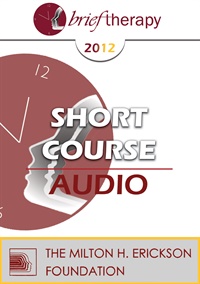
- Average Rating:
- Not yet rated
- Topic Areas:
- Short Courses | Love
- Categories:
- Brief Therapy Conference | Brief Therapy Conference 2012
- Faculty:
- Michael Munion, MA, LPC
- Duration:
- 2:04:23
- Format:
- Audio Only
- Original Program Date:
- Dec 09, 2012
- Short Description:
- BT12 Short Course 54 – Love and Intention: Improving Strategic Outcomes – Michael Munion, MA This workshop provides a framework for assessing clients along two important dimensions that impact therapeutic outcome: motivation and sense of agency (one’s perception of their ability to create change in their own lives). This assessment fosters interventions that enhance the capacity for strategic interventions to be truly brief and solution focused. The participants in this workshop will have the opportunity to observe and practice this approach.
- Price:
- $15.00 - Base Price
Tags: Love

- Average Rating:
- Not yet rated
- Topic Areas:
- Couples Therapy | Sex and Sexuality | Infidelity | Workshops | Love
- Categories:
- Brief Therapy Conference | Brief Therapy Conference 2012
- Faculty:
- Esther Perel, MA, LMFT
- Duration:
- 2:46:59
- Format:
- Audio Only
- Original Program Date:
- Dec 08, 2012
- Short Description:
- BT12 Workshop 32 – Rethinking Couples Therapy: A Radical Approach to Love, Sex and Infidelity – Esther Perel, MA, LMFT Couples therapists are typically discouraged from seeing partners separately lest power imbalances, allegiances, or secrets further divide the couple. What’s lost in this approach? Through case examples, Esther Perel will show how to effectively engage such issues as intimacy, sexuality and infidelity by creating separate spaces where each partner can explore his/her feelings and experiences along with larger relationship dynamics. We will show how to navigate privacy and secrecy, honesty and transparency, stage interventions around sexual impasses, and structure a safe and flexible environment to work creatively with infidelity.
- Price:
- $15.00 - Base Price
Tags: Couples Therapy Love
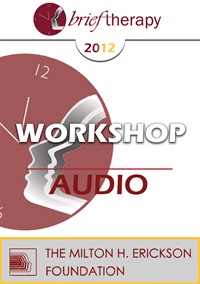
- Average Rating:
- Not yet rated
- Topic Areas:
- Attachment | Couples Therapy | Workshops
- Categories:
- Brief Therapy Conference | Brief Therapy Conference 2012
- Faculty:
- Esther Perel, MA, LMFT
- Duration:
- 2:47:19
- Format:
- Audio Only
- Original Program Date:
- Dec 08, 2012
- Short Description:
- BT12 Workshop 41 – Mating in Captivity: Reconciling Attachment, Security and Erotic Desire in Couples – Esther Perel, MA, LMFT Based on Perel’s bestseller, Mating in Captivity, this bold take on intimacy and sex grapples with the obstacles and anxieties that arise when our quest for secure love conflicts with our pursuit of passion. We will tackle eroticism as a quality of aliveness and vitality in relationships extending far beyond mere sexuality, and consider how the need for secure attachment and closeness can co-exist with the quest for individuality and freedom.
- Price:
- $15.00 - Base Price
Tags: Couples Therapy Love

- Average Rating:
- Not yet rated
- Topic Areas:
- Couples Therapy | Conversation Hours | Sex and Sexuality | Infidelity | Love
- Categories:
- Brief Therapy Conference | Brief Therapy Conference 2012
- Faculty:
- Esther Perel, MA, LMFT
- Duration:
- 59:25
- Format:
- Audio Only
- Original Program Date:
- Dec 07, 2012
- Short Description:
- BT12 Conversation Hour 10 – Rethinking Couples Therapy: A Radical Approach to Love, Sex, and Infidelity – Esther Perel, MA, LMFT Educational Objectives: Learn the philosophies of various practitioners and theorists.
- Price:
- $15.00 - Base Price
Tags: Couples Therapy Love
- Average Rating:
- Not yet rated
- Topic Areas:
- Keynotes | Couples Therapy | Love | Neurobiology | Neuroscience | Relationships
- Categories:
- Couples Conference | Couples Conference 2012
- Faculty:
- Helen E. Fisher, PhD
- Course Levels:
- Master Degree or Higher in Health-Related Field
- Duration:
- 58:07
- Format:
- Audio and Video
- Original Program Date:
- Apr 29, 2012
- Short Description:
- Anthropologist Helen Fisher uses her brain scanning studies (fMRI) of people happily in love, rejected in love and in love long-term to discuss the traits of romantic love, love-at-first-sight, and addiction to love. She focuses on her current research on 40,000 men and women to propose that four broad cognitive/behavioral personality trait constellations have evolved associated with the neural systems for dopamine, serotonin, testosterone and estrogen. Then she discusses her data on mate choice among 28,000 individuals to pro-pose why we are chemically drawn to one person rather than another.
- Price:
-
Sale is $29.00
price reduced from Base Price - $59.00
- Average Rating:
- Not yet rated
- Topic Areas:
- Psychotherapy | Keynotes | Intimacy | Mindfulness | Love | Couples Therapy | Neuroscience
- Categories:
- Couples Conference | Couples Conference 2012
- Faculty:
- Rick Hanson, PhD
- Course Levels:
- Master Degree or Higher in Health-Related Field
- Duration:
- 59:50
- Format:
- Audio and Video
- Original Program Date:
- Apr 29, 2012
- Short Description:
- To compensate for the brain’s innate negativity bias – making it like Velcro for negative experiences but Teflon for positive ones, which sensitizes couples to hurts and conflicts and undermines psychotherapy – we’ll explore a vital method in self-directed neuroplasticity: identifying key positive experiences and then registering them deeply in implicit memory.
- Price:
-
Sale is $29.00
price reduced from Base Price - $59.00
- Average Rating:
- Not yet rated
- Topic Areas:
- Workshops | Love | Couples Therapy | Neurobiology
- Categories:
- Couples Conference | Couples Conference 2012
- Faculty:
- Helen E. Fisher, PhD
- Course Levels:
- Master Degree or Higher in Health-Related Field
- Duration:
- 1:35:03
- Format:
- Audio and Video
- Original Program Date:
- Apr 29, 2012
- Short Description:
- In her lecture, Fisher discusses four biologically based styles of thinking and behaving and, using her data on mate choice among 28,000 individuals, shows why we are chemically drawn to one person rather than another. In this workshop Fisher goes deeper into these natural temperament constellations, and discusses how partners with very different (and similar) biological styles of thinking and behaving interact to create great joy, confusion and sorrow in their partnerships.
- Price:
-
Sale is $29.00
price reduced from Base Price - $59.00
Tags: Love Couples Therapy Neurobiology


